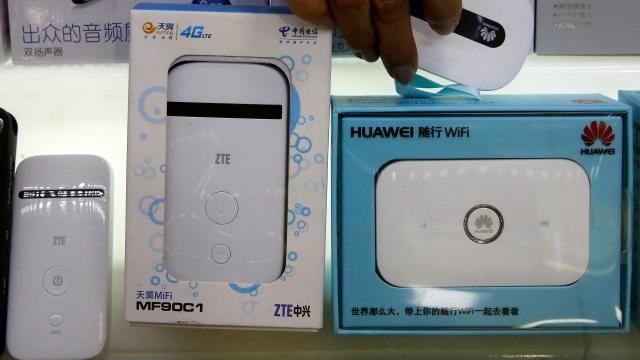Huawei and ZTE devices on sale at a mall in Beijing in 2018.Photo: Andy Wong (AP)
The Democratic National Committee in the U.S. is warning candidates, party officials, and campaign workers to steer clear of Huawei and ZTE mobile devices — apparently under the concern that the smartphones could used to spy on them.
Per CNN Money, a “senior Democratic source” said that DNC chief security officer Bob Lord wrote to candidates in the midterms saying, “It’s very important that party and campaign workers not use ZTE or Huawei devices, even if the price is low or free… please make sure that you are not using or purchasing ZTE or Huawei devices anywhere within your staff — for personal or work-related use.”
The DNC has ample reason to be concerned: During the 2016 campaign season, their email systems were successfully targeted by (allegedly Russian) hackers who orchestrated a phishing campaign. The U.S. intelligence community has been publicly floating separate concerns about both Huawei and ZTE since at least February, when officials from the FBI, CIA, and NSA testified before the Senate Intelligence Committee that either company could be spying for the Chinese government.
FBI Director Chris Wray told the committee, “We’re deeply concerned about the risks of allowing any company or entity that is beholden to foreign governments that don’t share our values to gain positions of power inside our telecommunications networks… [purchasing Huawei or ZTE products] provides the capacity to maliciously modify or steal information. And it provides the capacity to conduct undetected espionage.”
NSA Director Admiral Michael Rogers added, “This is a challenge I think that is only going to increase, not lessen over time for us. You need to look long and hard at companies like this.”
Both companies have consistently denied any and all allegations of spying. However, the Chinese government allegedly has strong links to Huawei and its overseas growth was fuelled by funding from state-owned banks. Earlier this year the Pentagon banned sales of both Huawei and ZTE devices at military bases — though despite the warnings from top intelligence officials, any actual evidence that either company could be a security threat has not been provided.
“The only thing that gives me any pause is that lawmakers have access to classified information,” Jamie Winterton, director of strategy for Arizona State University’s Global Security Initiative, told USA Today. “They may have a reason for picking out these two particular companies and saying we don’t want these particular phones released in the United States… I don’t think that that concern is solved by banning phones from companies in China.”
Earlier this year, ZTE landed itself in severe trouble with the U.S. over a separate national security issue — allegedly violating sanctions on Iran and North Korea. Commerce Department sanctions imposed on ZTE in response threatened to run the company out of business entirely, though they later became a bargaining chip in the ongoing U.S.-China trade war and were lifted in exchange for around $US1.7 ($2) billion in fines, changes of management, and security guarantees over the objections of the Senate.
